In a historic and symbolic gesture of unity, the Overlord of Mamprugu, Nayiri Mahami Bohagu Sheriga, has allocated land to the Mossi tribe from Burkina Faso, providing them with the opportunity to establish a presence and formalize their kingdom in Ghana.
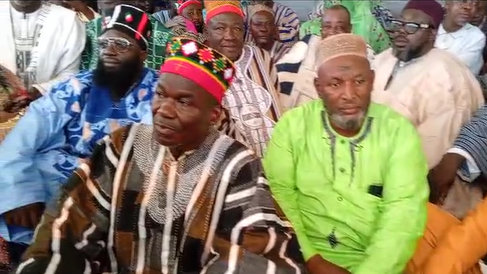
This landmark move, which took place on November 18, 2024, at a special sod-cutting ceremony, aims to promote peace, unity, and collaboration among the various tribes within the Mole-Dagbani Kingdom, particularly the Mamprusi, Dagomba, Nanumba, and Mossi peoples.
The Mossi people, who share a deep cultural connection with the Mamprusi, Dagomba, and Nanumba tribes, trace their origins back to a Ghanaian woman named Yomtori, whose marriage to a man in Burkina Faso led to the formation of the Mossi tribe.
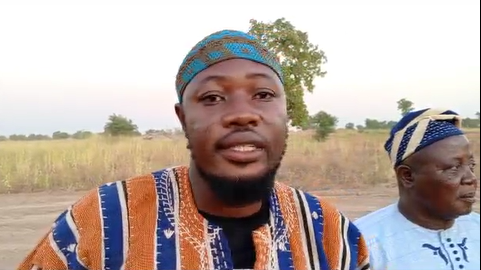
While the Mossi have traditionally resided in Burkina Faso, they have maintained strong ties to their Ghanaian cousins, even though they did not have a formal kingdom established in Ghana. This allocation of land by the Nayiri marks a significant step in deepening these historical and cultural ties.

At the ceremony, Nayiri Mahami Bohagu Sheriga emphasized that the gesture was not only meant to benefit the Mossi people but also to foster a spirit of unity and mutual respect among all the tribes of the Mole-Dagbani Kingdom.
He noted that the land is to be used as a space for the Mossi to settle peacefully and establish their cultural and traditional practices, ensuring that their heritage is preserved while contributing to the shared history of the region.
The Nayiri’s message was clear: the Mossi people should work in cooperation with existing traditional authorities and chiefs within the kingdom.
He specifically called on the Mossi to collaborate with the Mamprusi, Dagomba, and Nanumba chiefs to ensure that peace prevails and that no one seeks to undermine the authority of established leadership.
The Nayiri’s leadership is meant to provide guidance to the Mossi as they settle and grow within the region, but he emphasized that this should be done through collaboration rather than competition.
The Mossi leaders, who were present at the ceremony, expressed deep gratitude for the gesture. They acknowledged that their ancestors once called this land home before migrating to Burkina Faso and reiterated their commitment to strengthening the bonds of unity with their Ghanaian cousins. They also pledged to contribute positively to the community by adhering to the principles of peace and cooperation.
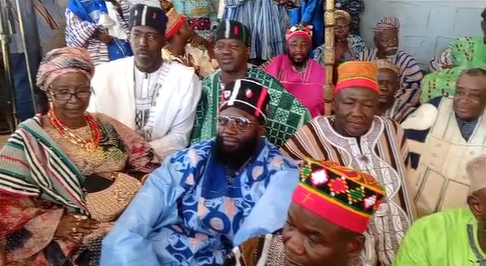
Hon. Yidana, the North East Regional Minister, also attended the event and took the opportunity to appeal to the youth of the region. He urged them to avoid being manipulated by politicians into engaging in violent activities, especially as the country heads into the crucial 2024 elections.
He emphasized that the youth must remain civil, and their actions must reflect the values of peace and harmony, ensuring that Ghana continues to thrive as a peaceful and united nation.
The ceremony was attended by a range of dignitaries, including the Ambassador of Burkina Faso to Ghana, who lauded the historic significance of the land allocation.
The event brought together Mossi representatives from both Ghana and Burkina Faso, showcasing the importance of cross-border ties and shared heritage in fostering peace and progress.
In the coming months, the Mossi people plan to begin developing the land and establishing their kingdom under the guidance of the Nayiri.
This development also includes the creation of a new Mossi chiefdom in Kanvli village, which the Yaa Naa, the traditional leader of the Dagombas, has graciously offered to the Mossi community. This further demonstrates the commitment of Ghana’s traditional leaders to fostering unity and peace within the region.
This historic gesture is expected to have long-term positive effects on the social and political landscape of northern Ghana. It is a powerful reminder of the rich cultural ties and shared history that exist across the Mole-Dagbani Kingdom and serves as a symbol of hope for a peaceful and united future for all the tribes in the region.

































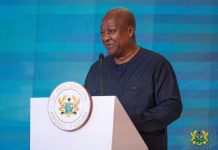


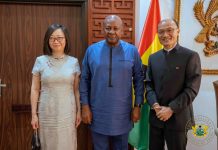



















![[FREE FREE MONEY] Predict and Win a Guaranteed GH¢200 From Us EVERY WEEK](https://wordpress.ghanatalksradio.com/wp-content/uploads/2022/02/Predict-and-Win-Final-09-03-2021-218x150.jpg)
![[Predict & Win – 8th/Oct.] WIN A Guaranteed ¢200 From Us This Week](https://wordpress.ghanatalksradio.com/wp-content/uploads/2021/10/maxresdefault-16-218x150.jpg)
![[Predict & Win – 2nd] WIN A Guaranteed ¢200 From Us This Week](https://wordpress.ghanatalksradio.com/wp-content/uploads/2021/09/maxresdefault-50-218x150.jpg)
![[Predict & Win – 25th] WIN A Guaranteed ¢200 From Us This Week](https://wordpress.ghanatalksradio.com/wp-content/uploads/2021/09/maxresdefault-36-218x150.jpg)
![[Predict & Win – 18th] WIN A Guaranteed ¢200 From Us This Week](https://wordpress.ghanatalksradio.com/wp-content/uploads/2021/09/maxresdefault-23-218x150.jpg)


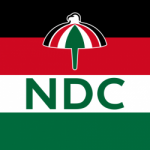





![[National cathedral] See full list of churches that have contributed since 2018](https://wordpress.ghanatalksradio.com/wp-content/uploads/2020/09/Ghana-National-Cathedral-GhanaTalksRadio-100x70.jpg)



